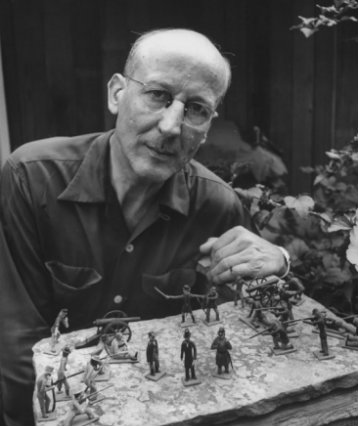Introduction
Bruce Catton (1899–1978) was one of the most-read Civil War historians. His fascination with the Civil War began in Benzonia, Michigan, where he grew up with Civil War veterans, whose stories “gave a color and a tone, not merely to our village life, but to the concept of life with which we grew up.” In 1916, he began attending Oberlin College, but left without completing a degree to serve in World War I. He was fifty years old when he began the first of his thirteen books on the Civil War, winning both the National Book Award and the Pulitzer Prize for the final volume of his trilogy on the Army of the Potomac, A Stillness at Appomattox (1953). He was also the founding editor of American Heritage, where this article was published in 1978.
What, according to Catton’s account, is the meaning of commemorating and reenacting the battle of Gettysburg fifty years later? Why does he regard what happened on July 3, 1913, as the conclusion of the battle fought fifty years earlier? What made possible the reconciliation at the end of the reenactment? Can one generalize this experience of Civil War veterans? What does it take for soldiers to become reconciled with those against whom they had previously fought?



Post a Comment